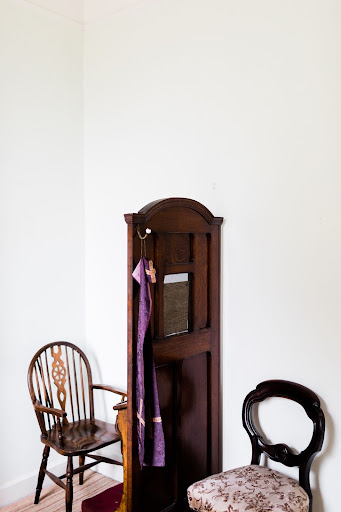
Reconcilia(c)tion
Photo by Grant Whitty on Unsplash
It is so easy to make a routine out of receiving the sacrament of reconciliation.1 We make an examination of conscience, confess our sins, receive a penance, and receive absolution. However, the other day I was reminded that this is not just a formula to be followed.
We receive the sacrament because of our faith in a God of mercy. But what if God desires our experience of the sacrament to inspire action in our life?
“What good is it, my brothers and sisters, if you say you have faith but do not have works? Can faith save you? … So faith by itself, if it has no works, is dead” (James 2:14,17).
James certainly doesn’t mince any words. In fact, he uses very few to say that faith and works are necessary in the life of a Christian. One without the other leads to disorder and things being uneven.
There are two extremes. One is when we have faith, but no action. We may pray constantly, have a lot of trust in God and regularly receive the sacraments. But at these times in our lives there are sometimes no works. It would not be evident we are a Christian to those around us.
On the other extreme is the temptation to make our faith ALL about works. We serve and serve and serve. This often means little time for prayer and connecting with God. Our works of service become disordered because instead of being connected to God it is just about volunteering. So is there a middle option? A so-called third way? What is it and how do you and I live it out?
The middle option is the combination of faith and works. One word that came to mind when thinking about this was RECONCILIACTION. This word provides us insight into the necessary two-fold nature of faith and works.
Our faith inspires and motivates us to seek out the sacrament of reconciliation to forgive our sins. We believe that we experience God’s mercy and grace through this sacrament to begin again.
However, it cannot stop there. True reconciliation involves action. Having received forgiveness from our Father we are invited to then tangibly forgive. We are also invited to apologize and ask forgiveness from those we have caused hurt. We can make amends with someone by doing an act of kindness or going out of our way to help them. We can share with someone about the forgiveness we received through the sacrament of reconciliation.
The bottom line is this: reconciliation is a both/and that involves faith and works. Next time you approach the Lord and receive forgiveness, remember to also take action in your own life and extend forgiveness to someone else.
1- The sacraments make visible and show the grace they pour into our lives. The Catechism of the Catholic Church defines the sacrament of reconciliation as “imparting to the sinner the love of God who reconciles: ‘Be reconciled to God.’ He who lives by God’s merciful love is ready to respond to the Lord’s call: ‘Go; first be reconciled to your brother’” (CCC 1424).
Patrick is a beloved son of the Father who desires to use his gifts to build up the Kingdom of God. You can read more of his writing on his blog.